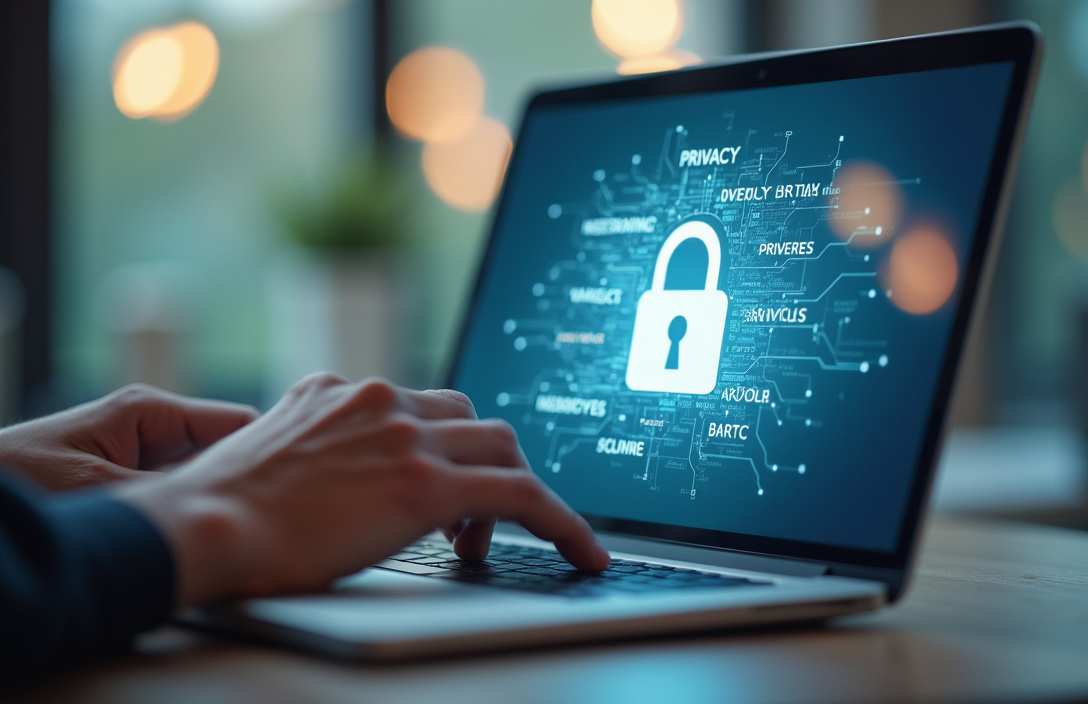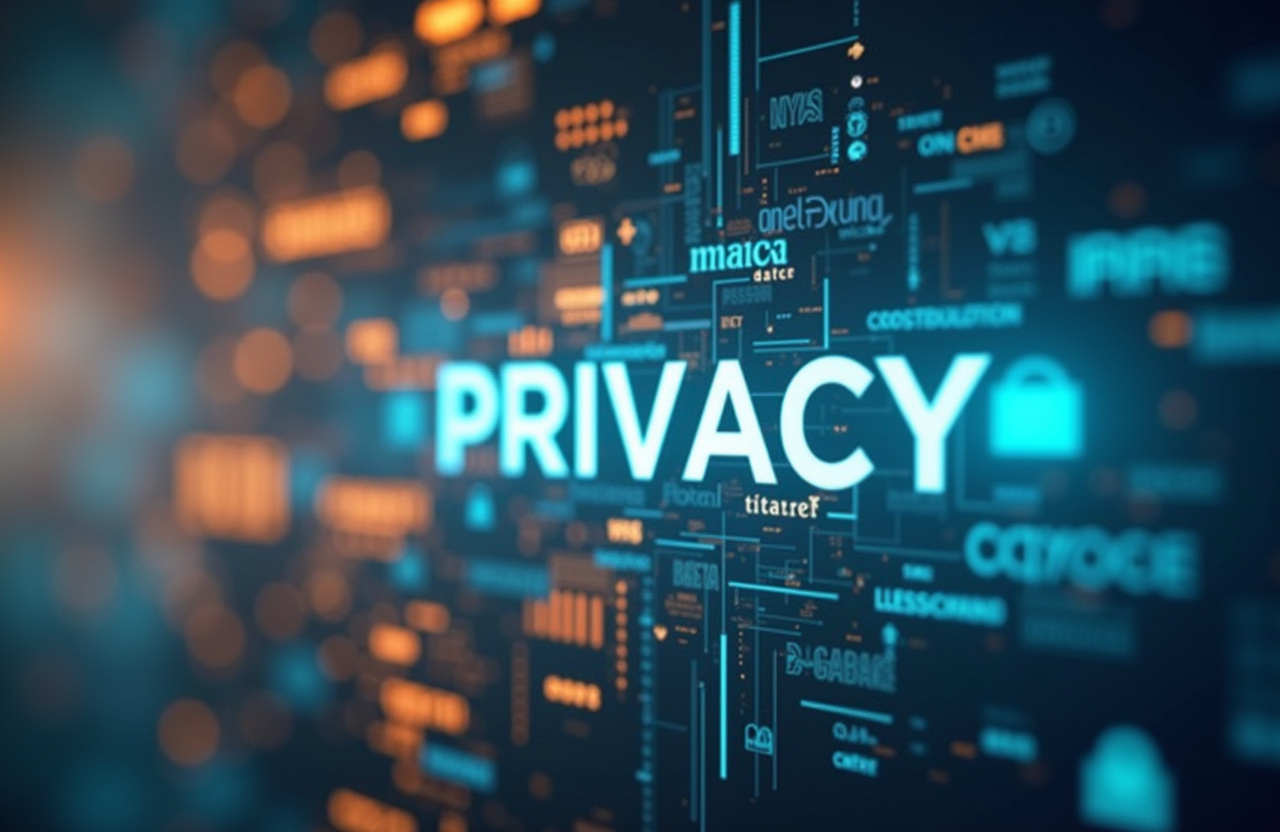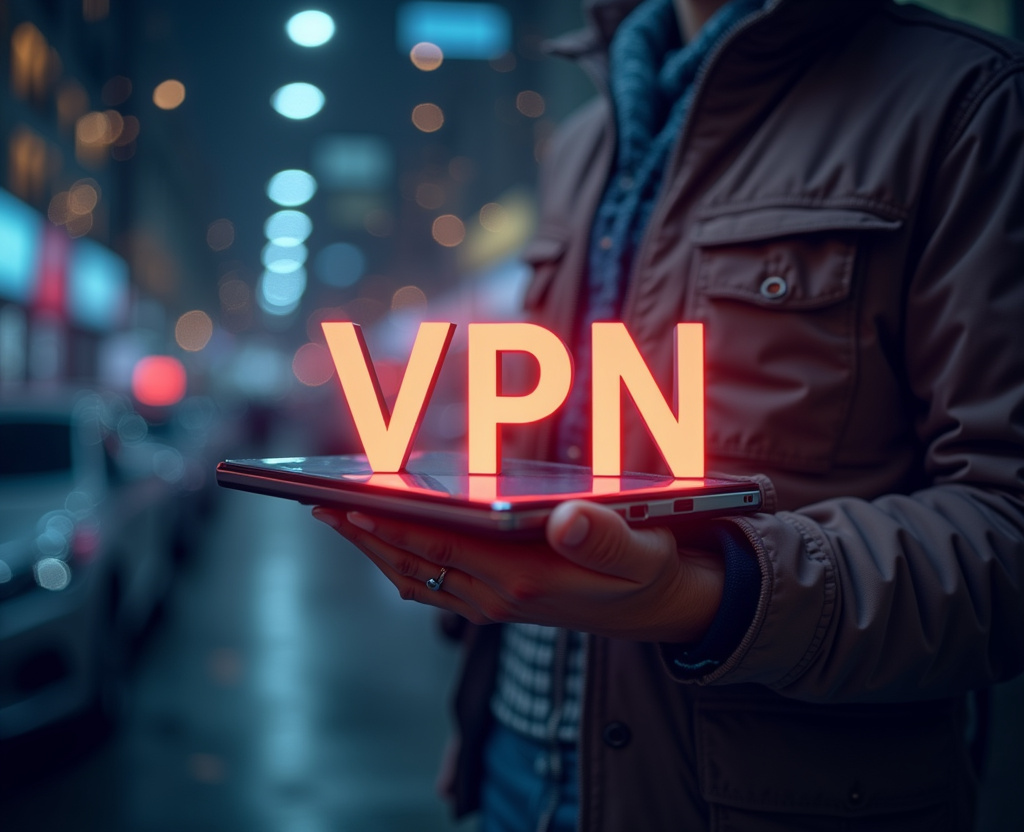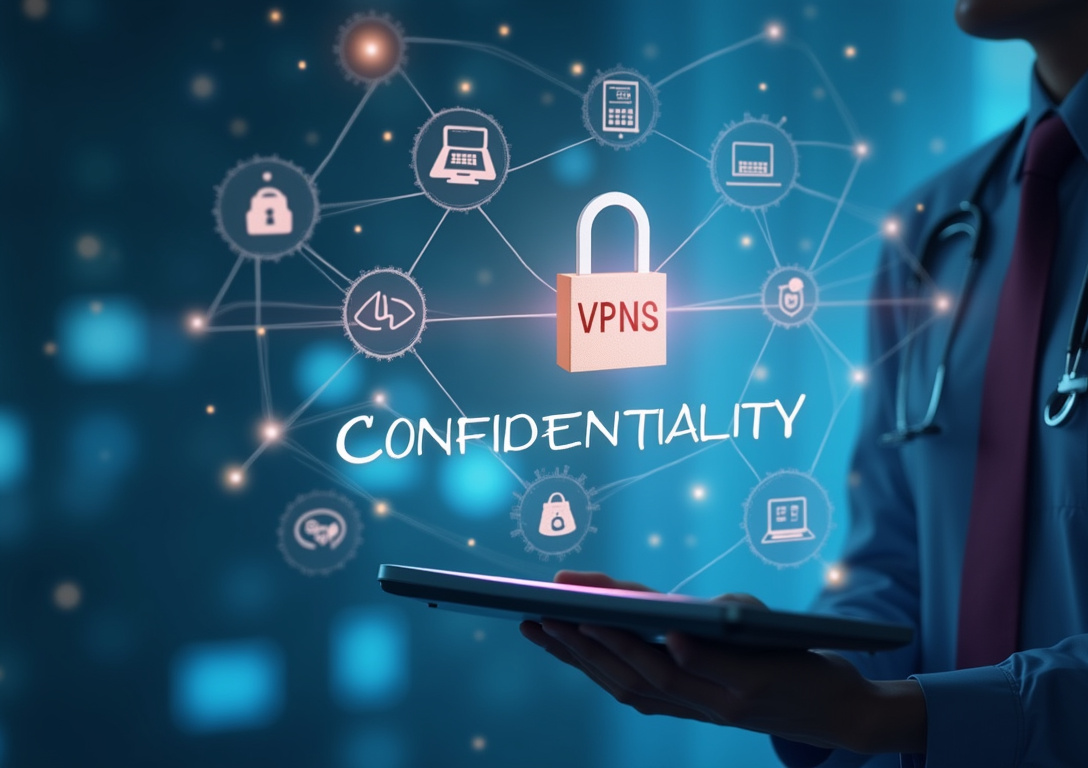VPNs for Seniors: Simplifying Online Privacy

Table of Contents
online privacy
In today's digital age, the internet has become an indispensable tool for people of all ages, including seniors. It offers numerous benefits, enabling them to connect with loved ones, access information, manage finances, and enjoy entertainment. However, the convenience of the internet also comes with inherent risks, particularly concerning .
Seniors, who may be less tech-savvy than younger generations, are often more vulnerable to online threats such as identity theft, scams, and privacy breaches. This is where a becomes an essential tool, acting as a shield against these threats and simplifying online safety. A Virtual Private Network (VPN) creates a secure, encrypted connection between a user's device and the internet, masking their IP address and encrypting their data.
This makes it significantly harder for hackers, advertisers, and even government agencies to track their online activity and steal their personal information. The core concept revolves around protecting sensitive data and maintaining anonymity while browsing, ensuring a safer and more secure online experience. For seniors, the idea of managing online security can seem daunting, filled with technical jargon and complex settings.
That's why choosing an is crucial. An ideal VPN for this demographic should have a user-friendly interface, straightforward installation process, and clear instructions. The goal is to provide robust protection without requiring extensive technical knowledge or complicated configurations.
The focus should be on simplicity and ease of navigation, allowing seniors to effortlessly connect to a secure server and enjoy the benefits of online privacy without feeling overwhelmed. Beyond just simplifying the interface, a good VPN also needs to offer real, tangible security benefits. It should employ strong encryption protocols to safeguard data from prying eyes, be located in a privacy-respecting jurisdiction (avoiding countries with extensive data retention laws), and have a strict no-logs policy.
This means that the VPN provider doesn't record or store any user activity, ensuring that their browsing history, IP address, and other sensitive information remain private. Understanding these foundational security features is important for seniors to make informed decisions and choose a VPN that truly prioritizes their . The selection process should also consider factors like the support offered by the VPN provider.
Many seniors may require assistance with setting up and using the VPN, so robust and accessible customer support is essential. Providers offering phone support, detailed tutorials, or even remote assistance can be particularly valuable. Furthermore, it's important to remember that a VPN is not a silver bullet for online security.
It is one component of a comprehensive security strategy that should also include strong passwords, anti-virus software, and safe browsing habits. Seniors should be educated about these other security measures and encouraged to adopt them alongside using a VPN. Ultimately, the goal is to empower seniors to take control of their online security and enjoy the benefits of the internet with confidence and peace of mind.
By choosing an easy-to-use VPN and implementing other security best practices, seniors can significantly reduce their risk of falling victim to online threats and protect their personal information from unauthorized access. The benefits extend beyond just security; a VPN can also improve the overall online experience by bypassing geo-restrictions and allowing access to content that may otherwise be unavailable. This added accessibility can enrich their lives and keep them connected to the world.
The key is to approach the topic with patience and understanding, recognizing that seniors may have different levels of technical proficiency and different needs when it comes to online security. By focusing on simplicity, ease of use, and providing clear and concise explanations, we can help them navigate the digital landscape safely and securely.
online privacy
The concept of is often misunderstood. Many believe that if they have nothing to hide, they have nothing to worry about. However, privacy is a fundamental right, and protecting it is crucial for maintaining control over personal information and preventing its misuse.
When seniors engage in everyday online activities, such as banking, shopping, or communicating with family, they share sensitive data that can be vulnerable to interception. Without a VPN, this data is often transmitted in plain text, making it easy for hackers to steal credit card details, passwords, and other personal information. A VPN encrypts this data, rendering it unreadable to unauthorized parties and safeguarding it from potential threats.
The importance of online privacy extends beyond just preventing identity theft and financial fraud. It also encompasses protecting personal freedom and autonomy. In an increasingly surveilled world, where governments and corporations constantly monitor online activity, a VPN can help seniors maintain their anonymity and avoid being tracked.
This is particularly important for those who may have strong opinions or engage in activities that could be considered controversial. By masking their IP address and encrypting their data, a VPN allows seniors to express themselves freely without fear of reprisal. Furthermore, a VPN can help seniors bypass geo-restrictions and access content that may be blocked in their region.
This can be particularly useful for accessing news websites, streaming services, or social media platforms that may be censored or unavailable in certain countries. By connecting to a VPN server in a different location, seniors can effectively spoof their IP address and access content as if they were physically located in that region. This opens up a world of information and entertainment that would otherwise be inaccessible.
This is where the concept of a solution truly comes into play. A VPN shouldn't just be about blanket protection; it should offer options and controls to cater to individual needs and comfort levels. This means allowing users to choose different server locations, select encryption protocols, and customize their privacy settings.
For instance, some seniors might prioritize speed over ultimate security for streaming videos, while others might prefer maximum encryption for banking transactions. A flexible VPN allows them to adjust these settings accordingly. Understanding the specific threats that seniors face is also crucial for promoting online privacy.
Phishing scams, for example, are a common tactic used by cybercriminals to trick people into revealing personal information. A VPN can't prevent phishing attacks directly, but it can help to mask a user's identity and location, making them less of a target. Similarly, public Wi-Fi networks are notoriously insecure, making them a prime target for hackers.
A VPN can provide a secure connection on public Wi-Fi, protecting sensitive data from being intercepted. Moreover, many websites and online services track users' browsing activity to collect data for targeted advertising. A VPN can help to prevent this tracking by masking the user's IP address and encrypting their traffic.
By understanding these threats and how a VPN can help to mitigate them, seniors can make more informed decisions about their online security. Ultimately, online privacy is not just about protecting personal information; it's about empowering individuals to control their digital footprint and maintain their autonomy in an increasingly connected world. By using a VPN and adopting other security best practices, seniors can enjoy the benefits of the internet while minimizing their risk of falling victim to online threats.
VPN for seniors
When selecting a , ease of use should be the paramount consideration. A complicated or confusing interface can deter seniors from using the VPN consistently, rendering it ineffective. Look for a VPN with a simple, intuitive interface that is easy to navigate.
The main functions, such as connecting to a server and disconnecting, should be clearly labeled and easily accessible. Avoid VPNs with cluttered screens, excessive technical jargon, or complex configuration options. Ideally, the VPN should offer a one-click connection feature that allows seniors to connect to a secure server with minimal effort.
The installation process should also be straightforward and painless. Look for a VPN that offers clear, step-by-step instructions and requires minimal technical knowledge. Some VPNs even offer remote installation support, where a technician can assist with the installation process remotely.
This can be particularly helpful for seniors who are less comfortable with technology. Another important consideration is the availability of customer support. Choose a VPN that offers reliable customer support through various channels, such as email, phone, or live chat.
The support staff should be patient, knowledgeable, and able to assist with any issues that may arise. Look for VPNs that offer dedicated support for seniors or those with limited technical expertise. Some VPNs even offer tutorials and FAQs specifically tailored to seniors' needs.
The VPN should be compatible with all the devices that seniors use, including computers, smartphones, and tablets. Look for a VPN that offers apps for all major operating systems, such as Windows, macOS, iOS, and Android. The apps should be consistent in design and functionality across all devices, making it easy for seniors to switch between devices without confusion.
It's also crucial to understand how a VPN affects internet speed. Encryption can sometimes slow down internet speeds, so it's important to choose a VPN that offers fast and reliable connections. Look for VPNs that have a large network of servers in various locations, as this can help to minimize latency and improve speed.
Many VPNs offer speed test tools that allow you to measure the speed of different servers. Beyond the technical aspects, the pricing structure of a VPN service is also critical. Many providers offer different subscription plans with varying features and price points.
For seniors, it's often best to opt for a simpler plan with essential features, rather than paying extra for advanced functionalities that they may not need or understand. Look for VPNs that offer a free trial or a money-back guarantee, so you can try the service risk-free before committing to a long-term subscription. When evaluating different VPNs, it's important to read reviews from other users, particularly those who are also seniors or have limited technical experience.
These reviews can provide valuable insights into the ease of use, customer support, and overall performance of the VPN. Pay attention to comments about the clarity of the interface, the responsiveness of the support team, and the reliability of the connection. Ultimately, the best VPN for seniors is one that is easy to use, reliable, and offers excellent customer support.
By carefully considering these factors, you can choose a VPN that will protect your without causing unnecessary frustration or confusion. Remember to prioritize simplicity and ease of navigation above all else, and don't be afraid to ask for help if you need it.
flexible security
The term "" in the context of VPNs for seniors goes beyond simply having adjustable settings. It encompasses the ability to adapt the VPN's functionality to different needs and situations, ensuring that seniors have the right level of protection without unnecessary complexity. This adaptability is crucial because seniors have varying levels of technical proficiency and different online habits.
Some may primarily use the internet for basic tasks like checking email and browsing news websites, while others may engage in more sensitive activities like online banking or social networking. A flexible VPN should allow seniors to tailor their security settings to match their specific needs and risk tolerance. For example, a senior who primarily uses the internet for browsing might choose a lower level of encryption to maximize speed, while one who frequently conducts financial transactions might opt for the highest level of encryption for maximum security.
The ability to choose different server locations is another important aspect of flexible security. Connecting to a server in a different country can allow seniors to bypass geo-restrictions and access content that might be blocked in their region. However, it can also affect internet speed and stability.
A flexible VPN should allow seniors to easily switch between different server locations to find the best balance between speed and accessibility. Another key element of is the ability to control which applications and websites are routed through the VPN tunnel. Some VPNs offer a feature called "split tunneling," which allows users to choose which apps and websites are protected by the VPN, while others are allowed to connect directly to the internet.
This can be useful for seniors who want to protect sensitive data while still maintaining fast speeds for streaming videos or downloading files. Furthermore, a truly flexible VPN should offer customizable security protocols. While most VPNs use industry-standard protocols like OpenVPN and IKEv2, some may offer alternative protocols that are better suited for certain situations.
For example, the WireGuard protocol is known for its speed and efficiency, making it a good choice for mobile devices. Seniors should be able to choose the protocol that best meets their needs and preferences. The user interface should also be customizable to some extent.
Seniors should be able to adjust the font size, color scheme, and layout of the interface to make it easier to read and navigate. Some VPNs even offer simplified interfaces specifically designed for seniors or those with limited technical experience. Another important aspect of flexible security is the ability to schedule VPN connections.
Seniors who want to ensure that their data is always protected can set up the VPN to connect automatically whenever they turn on their computer or mobile device. This eliminates the need to manually connect to the VPN each time they go online. In addition to these technical features, also encompasses providing seniors with clear and concise information about the risks they face online and the steps they can take to protect themselves.
VPN providers should offer educational resources, such as tutorials, FAQs, and blog posts, that explain the basics of online security in plain language. Ultimately, the goal of flexible security is to empower seniors to take control of their online privacy and security without feeling overwhelmed or confused. By providing them with the tools and information they need to make informed decisions, we can help them stay safe and secure online.
Remember that the best is one that is not only easy to use but also adaptable to their individual needs and circumstances.
easy-to-use VPN
In conclusion, empowering seniors to navigate the digital world safely and securely requires a multi-faceted approach, with an serving as a cornerstone of their online protection strategy. The internet offers immense opportunities for connection, information, and entertainment, but it also presents significant risks, particularly for those less familiar with its intricacies. By prioritizing simplicity, accessibility, and , we can equip seniors with the tools they need to enjoy the benefits of the online world without compromising their .
Choosing the right is more than just selecting a piece of software; it's about providing them with a sense of security and control over their digital lives. The ideal VPN should have an intuitive interface, straightforward installation process, and readily available customer support, ensuring that seniors can easily connect to a secure server and navigate the online world with confidence. It should also offer strong encryption protocols, a strict no-logs policy, and a commitment to protecting user privacy.
But the technical aspects of the VPN are only part of the equation. It's equally important to educate seniors about the risks they face online and the steps they can take to protect themselves. This includes teaching them about phishing scams, malware, and other online threats, as well as emphasizing the importance of strong passwords and safe browsing habits.
By combining a user-friendly VPN with comprehensive education, we can empower seniors to make informed decisions about their online security and minimize their risk of falling victim to cybercrime. The concept of is particularly important in the context of VPNs for seniors. Recognizing that seniors have varying levels of technical proficiency and different online habits, a flexible VPN should allow them to tailor their security settings to match their specific needs and risk tolerance.
This includes the ability to choose different server locations, select encryption protocols, and customize their privacy settings. Ultimately, the goal is to provide seniors with the right level of protection without overwhelming them with unnecessary complexity. Beyond the technical considerations, it's also essential to address the emotional and psychological aspects of online security.
Many seniors may feel anxious or fearful about using the internet, and the prospect of managing their online security can seem daunting. By approaching the topic with empathy and understanding, we can help to alleviate their concerns and build their confidence. This includes providing them with clear and concise explanations, avoiding technical jargon, and offering patient and supportive customer service.
Remember that online privacy is not just a technical issue; it's a human issue. It's about protecting the rights and dignity of individuals in the digital age. By empowering seniors to take control of their online security, we can help them maintain their independence, autonomy, and quality of life.
In a world that is increasingly dependent on technology, it's more important than ever to ensure that everyone has the opportunity to participate safely and securely. By prioritizing simplicity, accessibility, and flexible security, we can create a digital world that is inclusive and empowering for all, regardless of age or technical ability. The investment in online security for seniors is not just a matter of protecting their personal information; it's an investment in their well-being, their independence, and their ability to thrive in the digital age.
Stay Updated
Get the latest VPN news, tips, and exclusive deals to your inbox.




